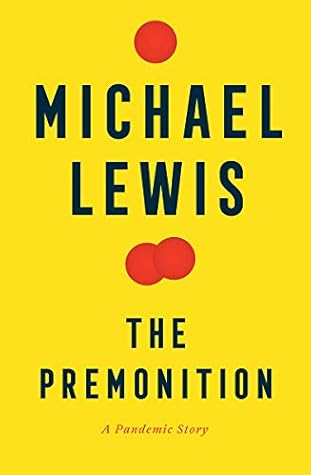More on this book
Community
Kindle Notes & Highlights
Obama wanted to speak with Carter. What’s the worst case? asked the new president. Nineteen eighteen, said Carter. What happened then? asked Obama. Thirty percent of the population was infected, and two percent died, said Carter. In the current situation, you’d be looking at two million dead.
It was the same lab from which, back in 2001, anthrax had escaped. It had employed the scientist who, in 2008, had committed suicide after being fingered as the likely sender of the letters containing anthrax that had killed five Americans.
Ok I thought it was some unmarked white van weirdo but I never finished the Netflix doc so that’s on me
“We know what the virus will do,” she liked to say. “We don’t know what the humans will do.” What the humans would do, she felt certain, is what they were led to do, if only they were well led. As she explained the critical role of the local public-health office, and the need for the state and the federal government to stand behind health officers in their dealings with their communities,
There was no system of public health in the United States, just a patchwork of state and local health officers, beholden to a greater or lesser degree to local elected officials. Three thousand five hundred separate entities that had been starved of resources for the past forty years.
In a single room the size of a basketball court, a COVID testing lab took shape. Setting it up gave Joe his first real view of the medical-industrial complex. It wasn’t designed for a crisis; if it was designed for anything, it was to maximize the profits of companies that enjoyed monopoly power. Labcorp and Quest, which were charging the state one hundred sixty dollars for every COVID test and returning the results so slowly that they were useless, were just one example.
Over and over again he saw the wild inefficiency of the private sector as a creator of knowledge. Far more often than not, some promising avenue of research would die as a failed company. He hated that; he hated the way financial ambition interfered with science and progress.
Lucas Simpson called to say that the truck had been located in West Sacramento, but without swabs. What he didn’t say, because he was too embarrassed to say it, was that inside the truck they’d discovered not medical swabs but Q-tips. So far as he could tell, there had never been any swabs in the Strategic National Stockpile.
they kind of looked like swabs.” But they weren’t sterile, or even packaged, so right there he knew they weren’t medical supplies of any kind. Joe studied them until the penny dropped: eyelash brushes. Some crafty soul had bought eyelash brushes, relabeled them as medical swabs, and sold them to the VC at a profit.
The owner of a Bay Area chemical company, Chris Kawaja, found another off-brand Chinese nasal swab supplier and messaged them. “I said, ‘Hey, do you have these things?’ ” Kawaja recalled, “and this woman came right back and said, ‘Yeah I have two hundred fifty thousand.’ ” These swabs were the real deal, but before Kawaja could nab them, the woman at the Chinese supplier sent another message to say, “Some guy in Houston just took two hundred thousand of them.” Kawaja charged the rest to his credit card—at 70 cents a pop, triple the old market price—and had them shipped to the Chan Zuckerberg
...more
Many local health offices were so understaffed and underequipped that they had trouble using the test kits. Most were unable to receive the results electronically; they needed the results faxed to them. Some had fax machines so old that they couldn’t receive more than six pages at a time. A few didn’t even have functioning fax machines, and so the Biohub got into the business of buying and delivering fax machines along with test kits.
He had memories of Poland as a communist regime, and of the total breakdown of the government’s ability to be useful to its citizens. What he saw in the local U.S. public-health offices reminded him of public services in Poland, but before the collapse of communism. “Poland now is not like this,” said David, after seeing the inside of a U.S. public-health office. “Poland now is more functional. Eastern Europeans are tough and kind of not shocked by a failed state. But these are the symptoms of a failed state.”
The final horror of the situation revealed itself when the hospital called the parents to inform them that their baby was brain-dead. “We don’t have a son,” they said. The Oaxacan community, at least that part of it encountered by the public-health nurses in Santa Barbara County, rejected children with serious defects. They pretended that the child had never been born. Charity was informed that the little boy would live out his days in a medical orphanage.


